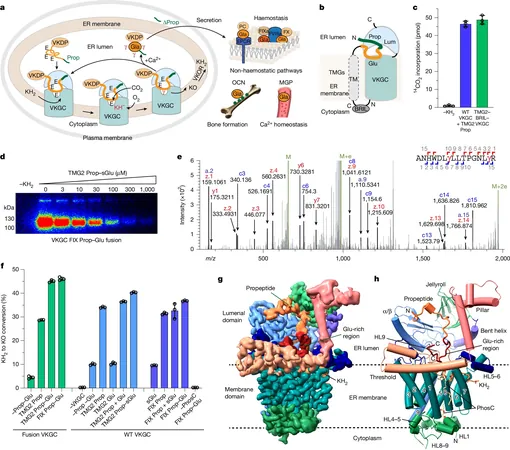
Could Higher Cigarette Taxes Be the Key to Saving Thousands of Children?
2025-04-29
Author: Siti
A fascinating new study from researchers at Karolinska Institutet reveals that raising cigarette taxes in low and middle-income countries could dramatically reduce child mortality rates. This groundbreaking research, featured in The Lancet Public Health, suggests that such tax increases could save the lives of over 280,000 children annually.
A Call to Action: The WHO's Tax Recommendations
The World Health Organization (WHO) has long advocated for a cigarette tax of at least 75% on retail prices, a figure that many countries still fall short of. Imagine the impact if 94 countries raised their cigarette taxes to meet this recommendation!
Closing the Gap: Socioeconomic Factors in Child Mortality
The study dives deep into how cigarette taxes correlate with child mortality rates across different income groups. By analyzing data from WHO, the World Bank, and the UN over the years 2008 to 2020, researchers found that elevated taxes could significantly lower mortality rates, especially among the most impoverished children.
The Power of Excise Duties
Among the various tax structures studied, excise duties—fixed taxes per cigarette packet—demonstrated the most significant positive impact on child survival rates. According to lead author Olivia Bannon, this uplift could help narrow the existing gap between the richest and poorest children, aligning with the United Nations' sustainable development goals.
Overcoming Challenges to Implementation
Despite the compelling evidence, the research acknowledges formidable challenges. The tobacco industry is notorious for employing tactics that disrupt and delay effective tobacco control measures, including taxation. Dr. Márta Radó emphasizes the urgent need for governments to resist industry interference to implement these crucial policy changes.
Collaborative Efforts Yield Important Findings
This study also benefited from collaborations with experts from universities in the Netherlands, Canada, and the UK, further underscoring the global commitment to addressing child health and mortality issues.
Ultimately, higher cigarette taxes could be a powerful tool not just for public health, but also for reducing inequality in child mortality rates. The question remains: will governments seize this opportunity to protect their most vulnerable populations?



 Brasil (PT)
Brasil (PT)
 Canada (EN)
Canada (EN)
 Chile (ES)
Chile (ES)
 Česko (CS)
Česko (CS)
 대한민국 (KO)
대한민국 (KO)
 España (ES)
España (ES)
 France (FR)
France (FR)
 Hong Kong (EN)
Hong Kong (EN)
 Italia (IT)
Italia (IT)
 日本 (JA)
日本 (JA)
 Magyarország (HU)
Magyarország (HU)
 Norge (NO)
Norge (NO)
 Polska (PL)
Polska (PL)
 Schweiz (DE)
Schweiz (DE)
 Singapore (EN)
Singapore (EN)
 Sverige (SV)
Sverige (SV)
 Suomi (FI)
Suomi (FI)
 Türkiye (TR)
Türkiye (TR)
 الإمارات العربية المتحدة (AR)
الإمارات العربية المتحدة (AR)